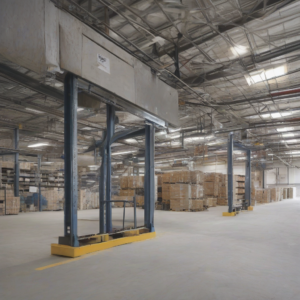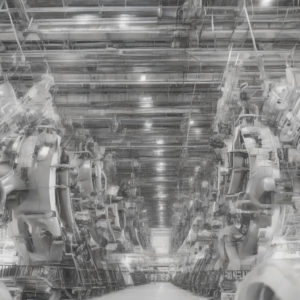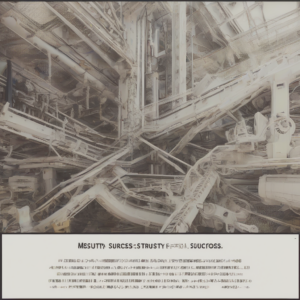Navigating the Complexities of Industrial Injury Claims: A Comprehensive Guide to Industrial Injury Lawyers
Sustaining an injury at work can be a devastating experience, impacting not only your physical well-being but also your financial stability and emotional state. The process of seeking compensation for industrial injuries can be daunting, riddled with complex legal procedures and insurance company tactics. This is where the expertise of an industrial injury lawyer becomes invaluable. This comprehensive guide delves into the crucial role of industrial injury lawyers, exploring their responsibilities, the legal landscape they navigate, and how they can help you secure the compensation you deserve.
Understanding Industrial Injuries and Workers’ Compensation
Industrial injuries encompass a wide range of workplace accidents and illnesses resulting from work-related activities. These can include:
- Physical injuries: Fractures, sprains, strains, burns, cuts, amputations, and traumatic brain injuries.
- Occupational diseases: Asbestosis, silicosis, carpal tunnel syndrome, hearing loss, and various forms of cancer resulting from workplace exposure.
- Repetitive strain injuries (RSIs): Conditions arising from repetitive movements or awkward postures, such as tendonitis and carpal tunnel syndrome.
- Mental health conditions: Stress, anxiety, and depression resulting from workplace harassment, bullying, or traumatic events.
Workers’ compensation laws are designed to protect employees who suffer work-related injuries or illnesses. These laws generally provide medical benefits, wage replacement, and other forms of compensation without requiring employees to sue their employers. However, navigating the workers’ compensation system can be challenging, particularly if your claim is denied or the offered compensation is inadequate.
The Crucial Role of an Industrial Injury Lawyer
Industrial injury lawyers specialize in representing injured workers in their claims for compensation. Their expertise is crucial in several ways:
- Understanding complex legal processes: Workers’ compensation laws vary by jurisdiction and are often complex and intricate. Industrial injury lawyers possess the in-depth knowledge necessary to navigate these complexities effectively.
- Gathering and presenting evidence: Building a strong case requires meticulous documentation, including medical records, witness statements, and accident reports. Lawyers are skilled at gathering and presenting this evidence persuasively.
- Negotiating with insurance companies: Insurance companies often try to minimize payouts. Industrial injury lawyers act as advocates, negotiating aggressively on behalf of their clients to secure fair compensation.
- Litigating cases when necessary: If negotiations fail, industrial injury lawyers are prepared to represent their clients in court, fighting for their rights through litigation.
- Calculating damages: Determining the full extent of damages involves assessing medical expenses, lost wages, future earning capacity, pain and suffering, and other related costs. Lawyers are adept at calculating these damages accurately.
- Ensuring compliance with deadlines: Workers’ compensation claims often have strict deadlines. Lawyers ensure all necessary paperwork is filed on time, preventing the claim from being dismissed.
Choosing the Right Industrial Injury Lawyer
Selecting the right industrial injury lawyer is critical for a successful outcome. Consider these factors:
- Experience: Look for lawyers with extensive experience handling workers’ compensation cases and a proven track record of success.
- Specialization: Some lawyers specialize in specific types of industrial injuries. Choose a lawyer with expertise in the type of injury you sustained.
- Reputation: Research the lawyer’s reputation, reading online reviews and seeking referrals from trusted sources.
- Communication: Effective communication is essential. Choose a lawyer who is responsive, accessible, and keeps you informed throughout the process.
- Fees: Understand the lawyer’s fee structure, which often involves contingency fees (meaning they only get paid if you win the case).
The Legal Landscape of Industrial Injury Claims
The legal landscape governing industrial injury claims is multifaceted, encompassing federal and state laws, regulations, and precedents. Key aspects include:
- Workers’ Compensation Statutes: Each state has its own workers’ compensation laws, which dictate eligibility criteria, benefits, and procedures.
- Employer Liability: Employers generally bear the responsibility for providing a safe working environment. Failure to do so can lead to liability for injuries.
- Third-Party Liability: In some cases, a third party (e.g., a manufacturer of defective equipment) may be held liable for the injury, opening up avenues for additional compensation.
- Pre-existing Conditions: Pre-existing conditions can complicate claims, requiring careful analysis to determine the extent to which the work injury aggravated or exacerbated those conditions.
- Medical Examinations: Independent medical examinations (IMEs) are often conducted to evaluate the nature and extent of the injury. Lawyers play a critical role in ensuring these exams are fair and unbiased.
Common Challenges in Industrial Injury Claims
Numerous challenges can arise during the process of pursuing an industrial injury claim:
- Claim denials: Insurance companies frequently deny claims based on technicalities or disputes about causation.
- Insufficient compensation offers: Insurance companies often offer settlements far below the actual value of the claim.
- Delayed payments: Delays in receiving benefits can create significant financial hardship for injured workers.
- Dealing with insurance adjusters: Adjusters are trained to minimize payouts, making it essential to have legal representation.
- Navigating appeals processes: If a claim is denied, appealing the decision can be a complex and time-consuming process.
- Proving causation: Establishing a direct link between the injury and the work environment can be challenging, particularly with occupational diseases.
The Benefits of Hiring an Industrial Injury Lawyer
The advantages of engaging an industrial injury lawyer are substantial:
- Increased likelihood of success: Lawyers possess the knowledge and skills to build strong cases and negotiate effectively.
- Maximizing compensation: Lawyers work to secure the maximum possible compensation for medical expenses, lost wages, and other damages.
- Reducing stress and anxiety: Handling the legal complexities of a claim can be overwhelming. Lawyers handle the legal aspects, allowing you to focus on recovery.
- Protecting your rights: Lawyers ensure your rights are protected throughout the claims process.
- Advocacy and support: Lawyers provide crucial advocacy and support during a difficult time.
Conclusion (Omitted as per instructions)




